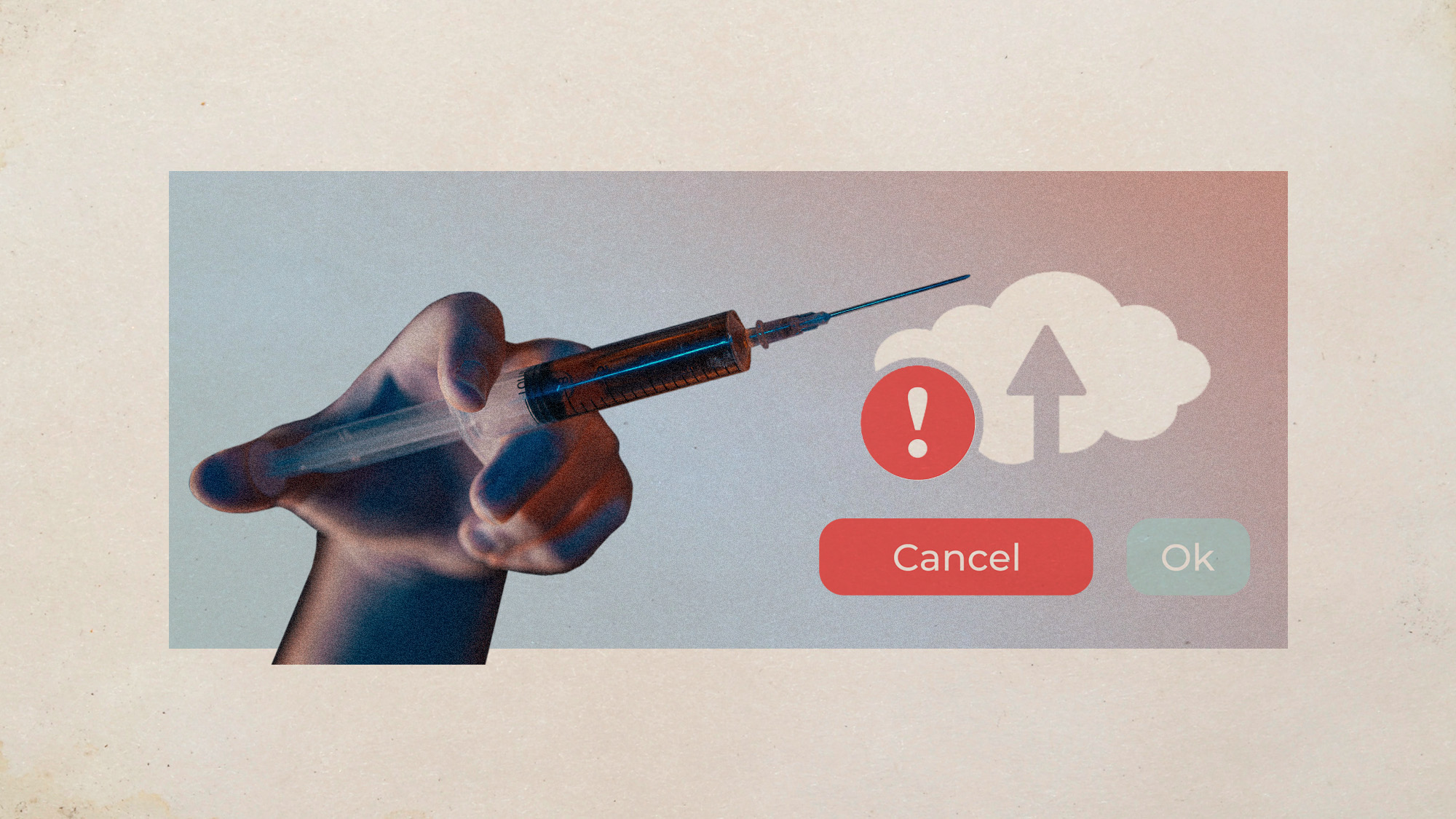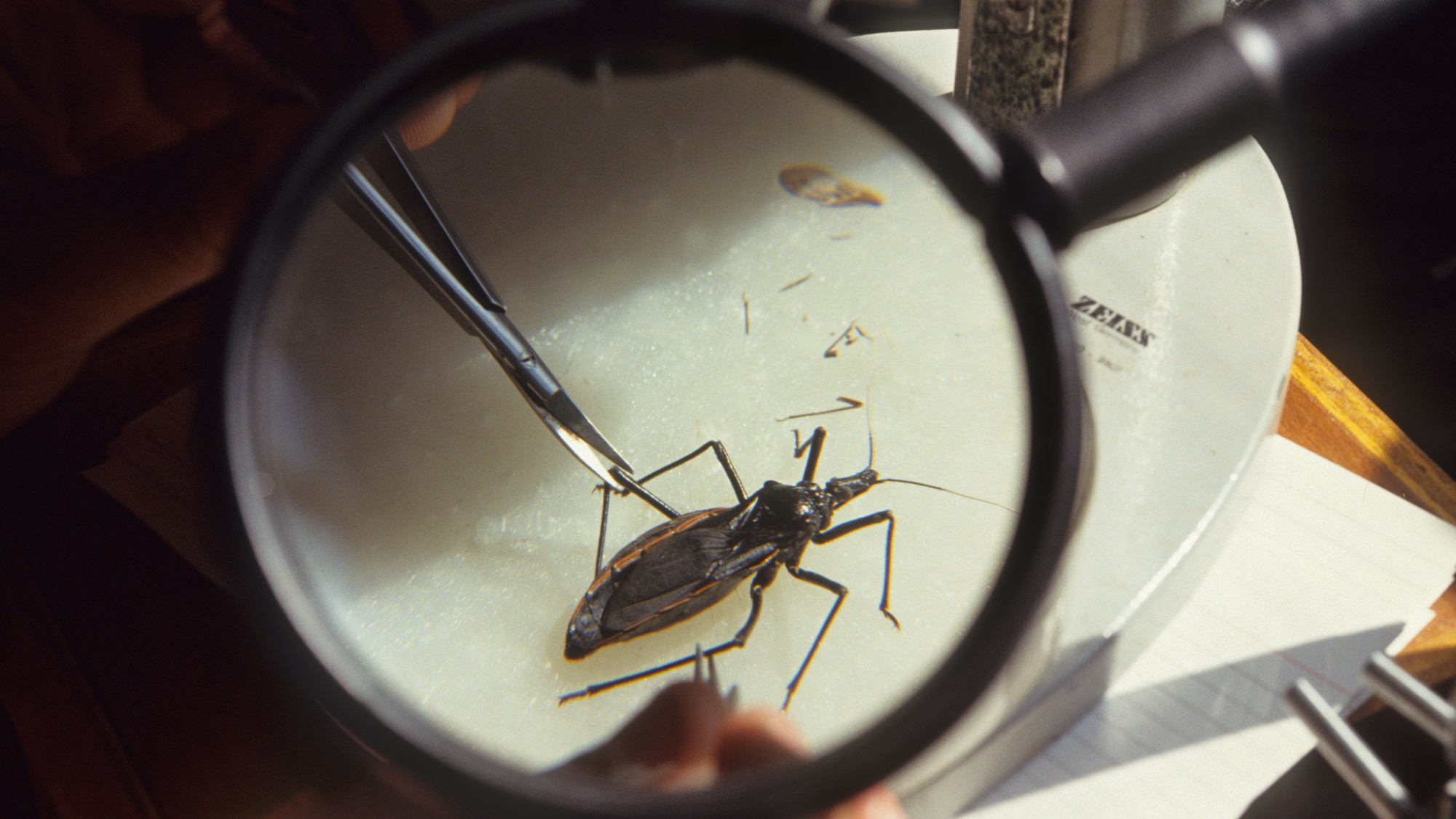Endometriosis: the ‘incurable’ disease affecting one in 10 women
Advances by Australian researchers offer hope for new treatments and more targeted diagnoses for the debilitating condition

A free daily email with the biggest news stories of the day – and the best features from TheWeek.com
You are now subscribed
Your newsletter sign-up was successful
A new study has provided a major breakthrough in the search for effective treatments for endometriosis, a disease that affects more than 10% of reproductive-age women and girls.
Researchers at Sydney’s Royal Hospital for Women have grown tissue “from all known types of endometriosis in a lab and observed the changes in the cells after different treatments”, Australia’s 9 News reported. The “breakthrough” promises new treatments and “could improve the health of women living with the painful and debilitating disease”, said The Guardian.
The findings are similar in scale to those made in breast cancer treatment 30 years ago, Jason Abbott, professor of obstetrics and gynaecology at the hospital, told the paper. They are “paving the way for new research into effective treatments and more targeted diagnoses”, said the Brisbane Times.
The Week
Escape your echo chamber. Get the facts behind the news, plus analysis from multiple perspectives.

Sign up for The Week's Free Newsletters
From our morning news briefing to a weekly Good News Newsletter, get the best of The Week delivered directly to your inbox.
From our morning news briefing to a weekly Good News Newsletter, get the best of The Week delivered directly to your inbox.
What is endometriosis?
Endometriosis affects about 10% (190 million) of reproductive-aged women and girls globally, according to the World Health Organization (WHO).
Tissue similar to the lining of the uterus grows in other places, like the ovaries, bowel, bladder or the fallopian tubes, and occasionally in the spine, brain or lungs.
As the tissue behaves like womb tissue, it swells and bleeds each month. This can cause extreme pain “because the tissue grows and bleeds in an area where it cannot easily get out of your body”, according to the US Office on Women’s Health.
The growths may also expand and cause problems such as cysts, blocked fallopian tubes, scar tissue and adhesions.
A free daily email with the biggest news stories of the day – and the best features from TheWeek.com
Sufferers “are more likely to have infertility or difficulty getting pregnant”, said Johns Hopkins Medicine. A 2012 study estimated that as many as 50% of women with endometriosis could experience infertility.
The cause is unknown but theories include genetic factors and issues with the immune system. It can affect any woman, but is more common among those in their 30s and 40s.
Famous sufferers include the model Chrissy Teigen, “Love Island”’s Molly-Mae Hague, actress Amy Schumer and comedian Lena Dunham. The latter told Vogue magazine in 2018 that she underwent a hysterectomy at the age of 31 after years of complex surgeries.
What are the symptoms?
Endometriosis most commonly causes chronic pelvic pain, especially during periods, sex or when using the toilet.
Other symptoms include:
- Heavy menstrual bleeding or bleeding between periods
- Bloating
- Nausea
- Constipation
- Diarrhoea
- Blood in urine or stool
Due to its debilitating nature, endometriosis can also lead to depression, according to the NHS.
As symptoms are variable and broad, “healthcare workers may not easily diagnose it”, said the WHO.
Why does endometriosis diagnosis take so long?
“Shockingly, the average diagnosis time is currently more than seven years,” reported the Evening Standard, but that also masks huge variation.
About 58% of people visited their doctor more than 10 times before being diagnosed, with 43% going to a hospital more than five times, according to the 2020 report by the All-Party Parliamentary Group on Endometriosis. About 38% of respondents said they had experienced symptoms for 10 years or longer before receiving a diagnosis.
The reasons for delays in diagnosis include pain being normalised and dismissed as “period pain”, symptoms not being recognised by doctors, “or sometimes the level of pain is simply not believed”, the report said. “Cultural taboos may restrict discussions around menstruation.”
“Myths in our society about endometriosis are rife,” Faye Farthing, campaigns and communications manager for Endometriosis UK, told Women’s Health. Women are often “accused of attention-seeking or having a weak pain threshold”.
Medical bias and the gender health gap have been blamed for the poor understanding of the condition. Studies have found that women are less likely to feel listened to by medical professionals.
“The association of endometriosis with historically specific constructions of menstruation and women’s pain has informed contemporary imaginaries around the condition,” concluded a 2021 study, “including ideas about women being somehow accountable for their own illnesses.”
What are the treatments for endometriosis?
While there is no known cure, symptoms can be managed with painkillers, hormonal treatment like contraceptives, pelvic physiotherapy and surgery.
The two main surgical techniques are:
- Ablation, which destroys endometrial tissue with heat
- Excision, which involves cutting out as much of the endometriosis as possible and repairing damage
Laparascopic excision surgery is offered in Australia, New Zealand and Europe to reduce pain.
However, “the current quality of evidence assessing the effectiveness of surgery in reducing pain is low because the studies were small and didn’t follow participants for long”, wrote medical experts in Australia in an article published last year by The Conversation.
Harriet Marsden is a senior staff writer and podcast panellist for The Week, covering world news and writing the weekly Global Digest newsletter. Before joining the site in 2023, she was a freelance journalist for seven years, working for The Guardian, The Times and The Independent among others, and regularly appearing on radio shows. In 2021, she was awarded the “journalist-at-large” fellowship by the Local Trust charity, and spent a year travelling independently to some of England’s most deprived areas to write about community activism. She has a master’s in international journalism from City University, and has also worked in Bolivia, Colombia and Spain.
-
 The ‘ravenous’ demand for Cornish minerals
The ‘ravenous’ demand for Cornish mineralsUnder the Radar Growing need for critical minerals to power tech has intensified ‘appetite’ for lithium, which could be a ‘huge boon’ for local economy
-
 Why are election experts taking Trump’s midterm threats seriously?
Why are election experts taking Trump’s midterm threats seriously?IN THE SPOTLIGHT As the president muses about polling place deployments and a centralized electoral system aimed at one-party control, lawmakers are taking this administration at its word
-
 ‘Restaurateurs have become millionaires’
‘Restaurateurs have become millionaires’Instant Opinion Opinion, comment and editorials of the day
-
 Is the US about to lose its measles elimination status?
Is the US about to lose its measles elimination status?Today's Big Question Cases are skyrocketing
-
 A real head scratcher: how scabies returned to the UK
A real head scratcher: how scabies returned to the UKThe Explainer The ‘Victorian-era’ condition is on the rise in the UK, and experts aren’t sure why
-
 Trump HHS slashes advised child vaccinations
Trump HHS slashes advised child vaccinationsSpeed Read In a widely condemned move, the CDC will now recommend that children get vaccinated against 11 communicable diseases, not 17
-
 Vaccine critic quietly named CDC’s No. 2 official
Vaccine critic quietly named CDC’s No. 2 officialSpeed Read Dr. Ralph Abraham joins another prominent vaccine critic, HHS Secretary Robert F. Kennedy Jr.
-
 This flu season could be worse than usual
This flu season could be worse than usualIn the spotlight A new subvariant is infecting several countries
-
 Bluetoothing: the phenomenon driving HIV spike in Fiji
Bluetoothing: the phenomenon driving HIV spike in FijiUnder the Radar ‘Blood-swapping’ between drug users fuelling growing health crisis on Pacific island
-
 ‘Nightmare bacteria’ are rapidly spreading
‘Nightmare bacteria’ are rapidly spreadingUnder the radar The infections are largely resistant to antibiotics
-
 Kissing bug disease has a growing presence in the US
Kissing bug disease has a growing presence in the USThe explainer The disease has yielded a steady stream of cases in the last 10 years